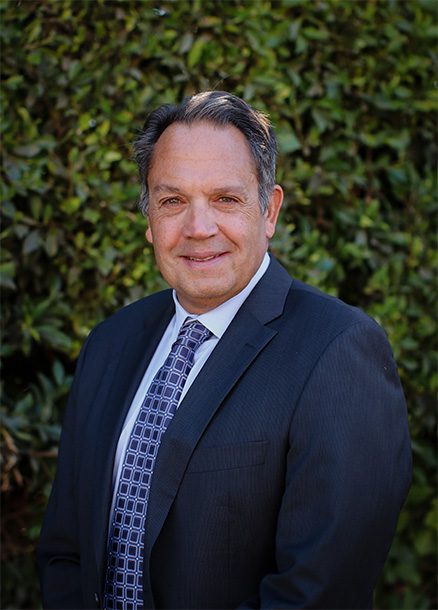HIPAA
The Health Insurance Portability and Accountability Act, or “HIPAA,” is a federal law designed to protect medical patients’ information from being shared without the patient’s knowledge or consent. Although several types of entities are required to follow HIPAA regulations, two of the most common are healthcare providers and health plans. Both are prohibited from discussing claims, benefits, and other issues with unknown persons. HIPAA privacy standards also prohibit physicians and other medical personnel from discussing a patient’s status without authorization.
There are many ways to obtain authorization, including a patient’s verbal consent, written consent, or a patient’s request to have another person participate in a medical appointment or procedure. In their professional judgment, medical providers can also share information with spouses without a patient’s consent or knowledge.
HIPAA Attorneys Proudly Serving Ventura County and Surrounding Areas
A HIPAA authorization form allows you to choose who can have access to your private medical information. If you are interested in adding a HIPAA to your estate plan, consult with Botti & Morison Our experienced California estate planning lawyers have provided assistance to countless families in the state of California.
We Have Estate Planning Offices Throughout Southern and Central California
Botti & Morison Estate Planning Attorneys has offices in Ventura, Westlake Village, Santa Barbara, Valencia, Bakersfield, and San Luis Obispo. Call today at (877) 585-1885 to set up your first consultation free of charge.
Information Center
Estate Planning and Medical Care
Estate planning is commonly thought of as a plan for individuals when they die. However, a complete estate plan also includes planning for times when it is no longer possible to make decisions while alive. Often, these situations include:
- Older people near the end of their lives
- Unforeseen emergencies resulting in severe and long-term cognitive injuries
- Other situations where an individual no longer has total mental capacity
In sum, the above three categories include individuals at the greatest risk of losing the ability to make their own decisions. It is true that some situations are completely unforeseeable and cannot be prevented. However, most individuals will benefit from having a complete estate plan to better prepare for when they can no longer make decisions. A legal instrument that prepares individuals, their families, and friends for that time includes a medical power of attorney. In this document, a person appoints another individual, called a “patient advocate,” to make decisions for them at the end of the person’s life. Patient advocate roles can be quite extensive and could include the following:
- Making funeral and burial arrangements
- Viewing and discussing bills with medical billing teams
- Scheduling and attending appointments
- Discussing treatment options with medical providers
- Speaking with insurance companies
- Communicating with and explaining details to the patient
- Filling out forms with or on behalf of the patient
A patient advocate serves the best interests of the person needing assistance with medical care. When choosing a patient advocate, it is essential to think about individuals who know and understand the person’s wishes and who will act on behalf of those wishes.
HIPAA and Estate Planning
HIPAA prevents medical providers and insurance companies from communicating with non-patients without consent or knowledge. Individuals who genuinely want to help a patient are often unable to do so without documentation that gives authorization. This is particularly frustrating for spouses and children who want to help their partners and parents.
To ensure that loved ones can provide the best support possible during difficult times, an estate planning attorney can help identify and appoint the right person to act as a patient advocate. Once the medical power of attorney is created, it should be shared with a patient’s medical clinic and the person appointed to serve as a patient advocate.
Who Can Be A Patient Advocate?
There are a few rules that govern who can be a patient advocate. At a minimum, the patient advocate must be at least 18 and be of sound mind. Most importantly, the person appointed should be trustworthy, able to advocate for the patient’s wishes, and capable of carrying out the requests as required by the medical power of attorney. The patient advocate must be someone who can make very challenging decisions, even if other family members or friends disagree with those decisions.
Estate planning attorneys can help clients identify patient advocates to fulfill their wishes. This process can be difficult when there are multiple persons who, if not selected, could feel slighted by the patient’s decision. If choosing a patient advocate is difficult, an estate planning attorney can help create a complete estate plan that can prevent disputes among loved ones.
Additional Resources
Your Rights Under HIPAA | U.S. Department of Health and Human Services
The U.S. Department of Health and Human Services provides this federal webpage. It gives private individuals useful, basic information on what type of data is covered by HIPAA, which entities are subject to HIPAA’s restrictions on personal health information, what rights are specifically conveyed to an individual to control their information, and a summary of the permitted uses and disclosures that are authorized by federal law without a patient’s consent. Further, the webpage links to additional fact sheets, infographics, and frequently asked questions about HIPPA. Videos are also available in both English and Spanish captions through this page.
California Attorney General | Your Patient Privacy Rights: A Consumer Guide to Health Information Privacy in California
This webpage maintained by the California Attorney General can help explain more of the basics surrounding an individual’s rights according to the Health Insurance Portability and Accountability Act of 1996. It includes links and information that can be used when dealing with Medicaid, medical assistance programs, and state government agencies and related facilities.
HIPAA 101 | HIPAA for Caregivers
HIPAA for Caregivers is a volunteer resource for caregivers and their loved ones with education and resources relating to the Health Insurance Portability and Accountability Act of 1996. This page, created by HIPAA for Caregivers, provides a brief overview of HIPAA and how it has evolved since its initial passage in 1996. This page also links to several additional resources maintained by HIPAA for Caregivers to provide information and tools for caregivers to access and advocate when interacting with healthcare providers and other entities subject to HIPAA. While the focus is on caregivers, understanding what steps others must take to access protected health information can be invaluable to successfully plan for one’s future care and general estate management.
HIPAA Lawyers | Estate Planning Services in Ventura County, Los Angeles County and Central California
If you would like to include a HIPAA in your estate plan, it’s imperative that you speak with a knowledgeable estate planning attorney in California. At Botti & Morison, our lawyers carry over 90 years of combined experience in estate planning. They will take the time to attentively listen to your wishes in regards to who has access to your health care records.
HIPPA Attorneys in California
Our estate planning lawyers have decades of experience helping individuals and families set up tailored estate plans. Call today at (877) 585-1885 to set up your first consultation free of charge.
Botti & Morison accepts clients throughout California and has offices in Ventura County, San Luis Obispo County, Los Angeles County, Kern County, and Santa Barbara County.






